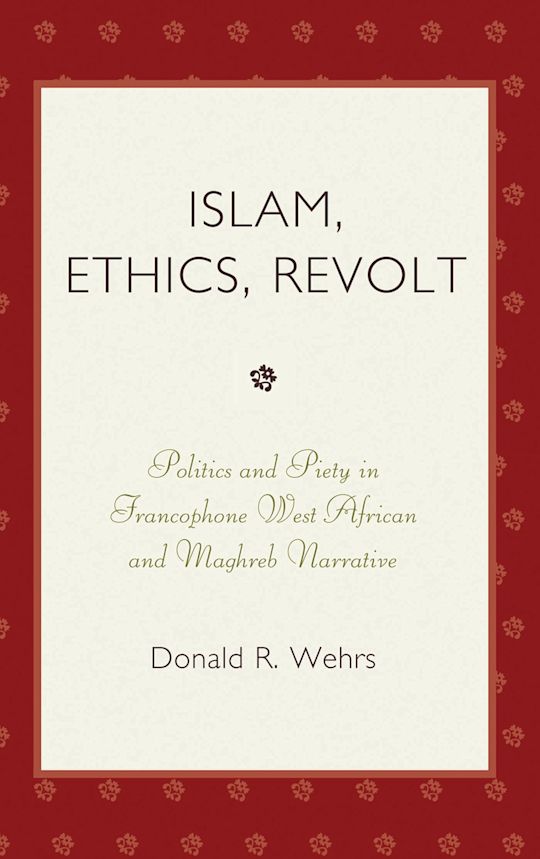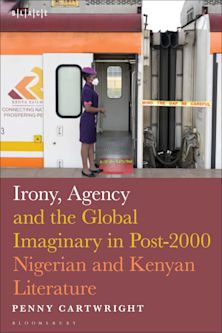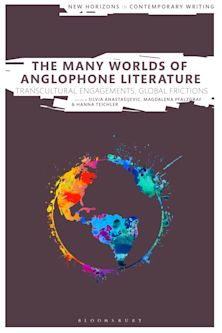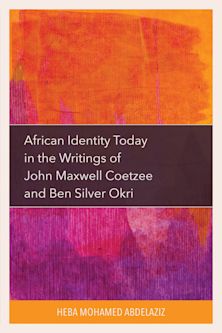- Home
- ACADEMIC
- Literary Studies
- African Literature
- Islam, Ethics, Revolt
Islam, Ethics, Revolt
Politics and Piety in Francophone West African and Mahgreb Narrative
Islam, Ethics, Revolt
Politics and Piety in Francophone West African and Mahgreb Narrative
This product is usually dispatched within 1 week
- Delivery and returns info
-
Free CA delivery on orders $40 or over
You must sign in to add this item to your wishlist. Please sign in or create an account
Description
This book analyzes how Francophone narratives written from the 1950s to the 1990s explore the struggle to craft decolonized forms of Islamic identity within sub-Saharan and North African societies. Considering major narratives by Camara Laye, Cheikh Hamidou Kane, Mariama Bâ, Assia Djebar, Rachid Boudjedra, Yambo Ouologuem, and Amadou Kourouma, Donald Wehrs highlights not only the writers' often sharply divergent attitudes toward Islam and varying assessments of possible relations between Islamic selfhood neither uncritical of Western modernity nor unreflectively hostile toward it.
In articulating their conceptions of Islamic identity and ethical subjectivity, all of these writers set up a dialogue with the ethical implications of novelistic discourse. The inescapable ethics of affective appeals generated by lived experience are intrinsic to these works, as they are to all novels. When such appeals are put into dialogue with the teachings of Islam, they tend, on the one hand, to privilege its iconoclasm, to make common cause with the self-critical tenor of Islam, its suspicion of the "idol-making" propensity of elites, socio-political orders, and human beings generally.
On the other hand, Islam requires novelistic discourse to distinguish ethics from enjoyment, ethical selfhood from unchecked and thus self-deifying and irresponsible autonomy. The privileging of prophetic discourse in Islamic novels illuminates the ethics of novelistic discourse while at the same time forcing it to question such Western idols as freedom as its own justification and material comfort as the central good of social, political life. By pursuing each narrative's engagement with Islam as a form of piety rooted in ethical revolt against egoism and idolatry, the study challenges Western academic postcolonial criticism to hear the evocation of Islamic ethical discourse within fictions addressing the trauma of decolonization in Muslim socio-political contexts.
Table of Contents
Chapter 2 Acknowledgments
Chapter 3 Introduction: Ethical Revolt in Islamic Piety and Novelistic Discourse
Chapter 4 1 Gendering the Subject and Engendering the Self: Mande Acculturation, Islamic Piety, and the Forging of Ethical Identity in Camara Laye's L'Enfant noir
Chapter 5 2 Islamic Ethics, Anticolonialism, and the Perils of Modernity and its Repudiation: Cheikh Hamidou Kane's L'aventure ambiguë
Chapter 6 3 Modernity in Revolt Against Islam: Ouologuem's Le devoir de violence and Boudjedra's La Répudiation
Chapter 7 4 Political Economy, Cultural Despair, and the Crisis of The Language of Revolt: Kourouma's Les soleils des indépendances
Chapter 8 5 Incorporating the Female Subject: Revolt, Despair, and Madness in Bâ's Un chant écarlate
Chapter 9 6 The "Sensible," the Maternal, and the Ethical Grounding of Feminist Islamic Discourse in Djebar's L'Amour, la fantasia and Loin de Médine
Chapter 10 7 Requiem and Rebirth: The Language of Islamic Ethical Revolt in Djebar's Blanc de l'Algérie
Chapter 11 Conclusion: Islamic Ethical Revolt in Historical and Philosophical Context
Chapter 12 Bibliography
Chapter 13 Index
Chapter 14 About the Author
Product details
| Published | May 16 2008 |
|---|---|
| Format | Hardback |
| Edition | 1st |
| Extent | 290 |
| ISBN | 9780739116494 |
| Imprint | Lexington Books |
| Dimensions | 239 x 162 mm |
| Publisher | Bloomsbury Publishing |
About the contributors
Reviews
-
Philosophically informed and highly sensitive to contemporary political issues, Donald Wehrs is the perfect guide to these brilliant novels that deserve to be so much better known. This is a wonderful book.
Robert Bernasconi, Pennsylvania State University
-
The book's rich bibliography encourages further exploration. Recommended. Upper-division undergraduates through faculty.
K. M. Kapanga, Choice Reviews
-
Wehrs's work is a valuable addition to the growing body of scholarship analyzing Islam as more than a sociological feature in African literature.
Research in African Literatures
-
In picking up a new book by Donald Wehrs, one expects to find wide literary and cultural reading, theoretical complexity, and challenging interpretations of individual works. All that is present in Islam, Ethics, Revolt. However, one might not have expected Wehrs's deeply sympathetic portrayal of Islamic piety. This feature of the book stands out particularly in the current intellectual and social climate.
Patrick Colm Hogan, University of Connecticut, author ofEmpire and Poetic Voice



































